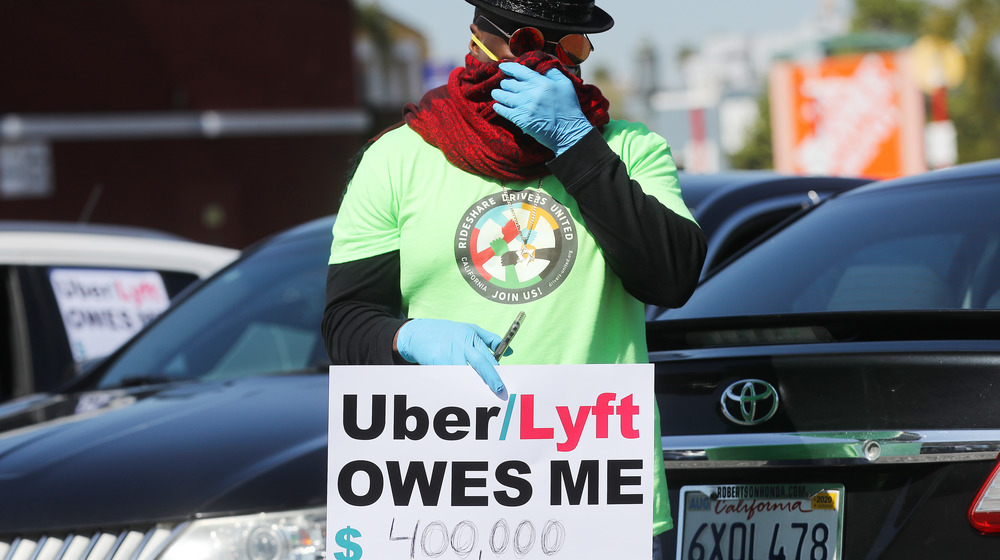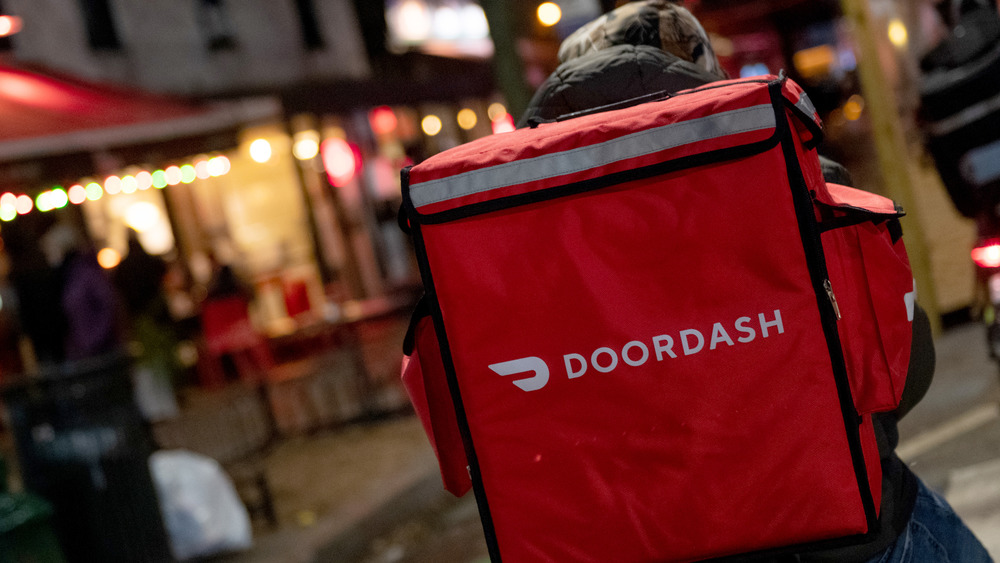The Real Reason Food Delivery Just Got More Expensive In California
When Proposition 22 passed in California last November, DoorDash CEO Tony Xu went on the DoorDash official blog to declare a victory for the restaurant-delivery company's customers. But was it, really? Prop 22 repealed a recent California law requiring app-based delivery companies such as Uber Eats, Instacart, and Postmates to give their drivers the status of employees. As the proposition was written, these businesses could continue to hire drivers as independent contractors, but they would give drivers some benefits. These wouldn't be as generous as the perks California law requires for actual employees, but drivers would get a minimum wage as long as they were actively delivering an order, in addition to money for health care and insurance for work-related injuries (via the Los Angeles Times).
Customers, meanwhile, would benefit from Prop 22 because they would continue to get reliable service whenever they wanted a restaurant or grocery order delivered to them. Giving drivers full-employee status would have added 20 or 30 percent to these driver-based businesses' costs, which would mean significant price hikes in suburban and rural areas. Shouldn't Californians who enjoy Uber Eats and DoorDash be thankful they dodged that bullet? Maybe not. The food-delivery companies ended up raising their rates anyway (via Eater San Francisco).
Food-delivery companies said Prop 22 would keep costs down
Last month, Uber told Eater SF that, starting on Dec. 14, Uber Eats customers in California would see fee increases ranging from 99 cents to $2 per order. DoorDash said it wouldn't impose a flat rate hike but would raise its service fees by a certain percentage.
Postmates, which Uber acquired after the November election, was the latest of these gig-economy delivery companies to adopt rate hikes for customers. Eater SF, citing the San Francisco Chronicle, said Postmates raised its fees in California by 50 cents to $2.50. Postmates' price hike was due to the passage of Prop 22 — the very same measure that was supposed to keep costs down.
Postmates explains on its website that the increases are needed to pay for the benefits independent drivers are getting from Prop 22. The labor-rights group Gig Workers Rising took to Twitter to criticize the rate increases, calling them "corporate bait and switch." During the Prop 22 campaign, Uber and the others had threatened that they would need to raise their rates if they were required to provide employee benefits. "Now that Prop 22 has passed, Uber is announcing that riders will have to shoulder increased costs after all," Gig Workers Rising said. Riders and takeout customers, too.
Then again, maybe these delivery services really need the money. As Eater SF notes, Uber and DoorDash both have been around for years but have never turned a profit.

